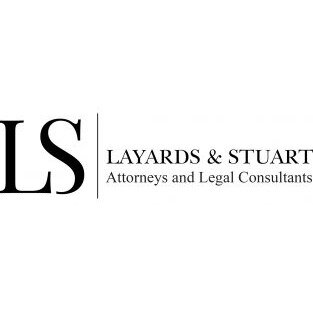Best Project Finance Lawyers in Sri Lanka
Share your needs with us, get contacted by law firms.
Free. Takes 2 min.
Or refine your search by selecting a city:
List of the best lawyers in Sri Lanka
About Project Finance Law in Sri Lanka
Project Finance in Sri Lanka refers to the legal and financial structuring of large-scale projects where repayment is made primarily from the cash flow generated by the project itself, rather than the general assets or creditworthiness of the project sponsors. Common sectors using project finance structures include infrastructure, energy, transportation, telecommunications, and water supply projects. Sri Lanka has seen significant activity in this field, especially with public-private partnerships and foreign direct investment into nationally significant projects. The legal landscape is shaped by local statutes and the practicalities of international finance, which often makes the process complex and highly specialised.
Why You May Need a Lawyer
A lawyer who specialises in project finance in Sri Lanka can provide invaluable assistance in several situations. You may need legal advice if you are:
- Investing in a large-scale infrastructure or energy project.
- Negotiating complex loan agreements with banks or international lenders.
- Entering into joint ventures or consortium agreements with partners.
- Dealing with government concessions, permits, or regulatory approvals.
- Managing risk allocation through contractual frameworks (such as EPC and O&M contracts).
- Understanding the impact of government policy and local regulations on your project.
- Seeking guidance on dispute resolution or enforcement of security interests.
A project finance lawyer will help you navigate the regulatory framework, draft and negotiate agreements, conduct due diligence, and ensure compliance with both local and international best practices.
Local Laws Overview
Project finance in Sri Lanka is primarily governed by a combination of local statutes, contract law principles, and regulatory policies. Key legal aspects include:
- Concessions and Licenses - Most infrastructure projects require specific government concessions, licenses, or permits for operation and development.
- Lender Security and Collateral - Security can be taken over project assets, receivables, and shares. The Recovery of Loans by Banks (Special Provisions) Act and the Companies Act are instrumental in the creation and enforcement of security interests.
- Foreign Investment Regulation - The Board of Investment of Sri Lanka (BOI) and the Central Bank regulate foreign investment and capital inflows, including repatriation of profits and currency exchange controls.
- Environmental and Land Laws - Projects must comply with environmental regulations, land acquisition laws, and planning approvals. The National Environmental Act is relevant for environmental impact assessments.
- Contract Law - Project agreements are generally governed by the Contract Act and influenced by English common law principles, which still provide persuasive guidance in Sri Lankan courts.
- Taxation - Project structures often require advice on tax planning, including exemptions, incentives, and transfer pricing issues.
- Public-Private Partnerships - The PPP Unit under the Ministry of Finance oversees PPP project guidelines and standard contractual models.
Understanding the intersection of these local laws and integrating them into project documentation is essential for successful and legally compliant project finance transactions.
Frequently Asked Questions
What is project finance and how does it differ from traditional financing?
Project finance is a method of funding where lenders look primarily to the revenues generated by a single project for repayment, not the general assets or creditworthiness of sponsors. Unlike traditional loans, the risk and liability are largely ring-fenced to the specific project.
Who can invest in project finance deals in Sri Lanka?
Both local and foreign investors, including private companies, banks, and institutional investors, can participate in project finance deals, subject to regulatory approvals and sector-specific restrictions.
What sectors in Sri Lanka commonly use project finance structures?
The most common sectors are energy (especially power generation), transport infrastructure (roads, ports, airports), water supply, and telecommunications.
How does the government regulate foreign investment in project financed projects?
Foreign investors must comply with guidelines issued by the BOI and Central Bank, which regulate approvals, permitted ownership levels, and the repatriation of profits.
What types of security can lenders take on project finance deals?
Lenders typically secure loans through charges over project assets, assignment of contracts and receivables, pledge of shares, and bank guarantees.
Is it possible to obtain government guarantees for project finance in Sri Lanka?
Government guarantees are sometimes available for large or strategic projects, especially those developed under public-private partnership schemes, but these are subject to negotiation and policy considerations.
How are disputes arising out of project finance contracts resolved?
Disputes can be resolved through negotiation, arbitration (often the preferred method), or litigation in Sri Lankan courts, depending on the terms agreed in the contract.
What environmental approvals are needed for project finance?
Most projects require an Environmental Impact Assessment (EIA) and must comply with the National Environmental Act and related regulations before commencement.
Can profits from project finance projects be remitted overseas?
Yes, but remittance is subject to Central Bank approval and compliance with foreign exchange rules and tax obligations.
What are common pitfalls to avoid in Sri Lankan project finance?
Common risks include unclear land or title issues, delays in obtaining permits, inadequate due diligence, unfavorable contract terms, and non-compliance with regulatory requirements.
Additional Resources
If you are seeking further guidance or official information on project finance in Sri Lanka, you may find the following resources helpful:
- Board of Investment of Sri Lanka (BOI) - for laws and guidelines on foreign investment and project approvals
- Central Bank of Sri Lanka - for rules on financing, currency exchange, and foreign remittance
- PPP Unit, Department of National Planning, Ministry of Finance - for public-private partnership guidelines and procedures
- Registrar of Companies - for company registration and compliance matters
- Environmental Authority - for environmental impact assessments and approval processes
- Law firms and legal practitioners specialising in project finance - for bespoke legal advice and transaction support
Next Steps
If you need legal assistance in the area of project finance in Sri Lanka, consider the following steps:
- Identify your specific project requirements and gather all relevant documents.
- Consult a qualified lawyer or legal firm with proven experience in project finance and infrastructure transactions.
- Request an initial consultation to discuss your objectives, obligations, and risks.
- Engage your legal advisor early to assist with due diligence, negotiation, and compliance with regulatory requirements.
- Maintain open communication with stakeholders, including government agencies, lenders, and project partners, facilitated by your legal counsel.
Early legal advice can improve your chances of success, minimize delays, and help you manage legal and commercial risks in complex project finance transactions.
Lawzana helps you find the best lawyers and law firms in Sri Lanka through a curated and pre-screened list of qualified legal professionals. Our platform offers rankings and detailed profiles of attorneys and law firms, allowing you to compare based on practice areas, including Project Finance, experience, and client feedback.
Each profile includes a description of the firm's areas of practice, client reviews, team members and partners, year of establishment, spoken languages, office locations, contact information, social media presence, and any published articles or resources. Most firms on our platform speak English and are experienced in both local and international legal matters.
Get a quote from top-rated law firms in Sri Lanka — quickly, securely, and without unnecessary hassle.
Disclaimer:
The information provided on this page is for general informational purposes only and does not constitute legal advice. While we strive to ensure the accuracy and relevance of the content, legal information may change over time, and interpretations of the law can vary. You should always consult with a qualified legal professional for advice specific to your situation.
We disclaim all liability for actions taken or not taken based on the content of this page. If you believe any information is incorrect or outdated, please contact us, and we will review and update it where appropriate.
Browse project finance law firms by city in Sri Lanka
Refine your search by selecting a city.

















